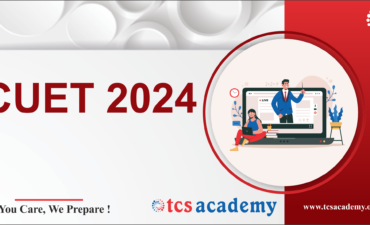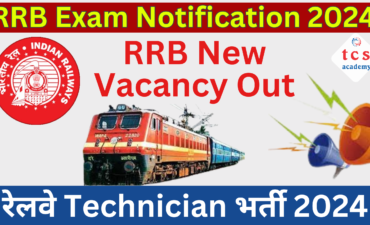
NITI Aayog’s recent innovation drive in educational institutions for stimulating and nurturing young minds to inculcate a scientific attitude can have critical implications. The pragmatic decision to establish open-ended innovation workspaces equipped with sophisticated sensor technology kits, elementary electronic gadgets and computers, robotics to promote creativity, curiosity and imagination is a remarkable experiment to reform the school laboratories, such as they exist.
ATLS (Atal Tinkering Labs), the Centre’s flagship initiative in selected schools across the country will accelerate and give an impetus to children to become the innovators of tomorrow. The project was started over a year ago with students between Grades VI and XII, to encourage them in the initiative to change the pattern of learning. Niti Aayog has recently selected 1500 more schools, thereby increasing the total to 2441, selected from over 25000-plus applications. Obviously the programme has the potential to transform young minds to be young innovators. The laboratories will be designed to buttress creativity. It will go beyond the habitual textual learning in class. By using science and technology to support school education and stimulate innovations has numerous benefits, And yet there is need for caution.
The benefits depend on the ability of learning based on information technology to sustain student attention, encourage learners to develop imagination, foster curiosity, allow experimentation, and above all move towards a conducive learning environment that is self-paced and adaptive. Students need to be given time to learn. A technology-based learning environment can allow the learner to decide on the degree of practice that he requires in the field. In addition to adaptive learning, tools with intensive analytical capabilities such as learning analytics can go far in helping teachers to understand essential requirements of the child, thereby optimizing his time by focusing on his needs.
Seventy years of Independence constitute a convenient plank to look back at what we have achieved and to look forward to what we aspire to do, particularly in the field of science and technology education. Education should not necessarily aim at success in life but to achieve perfection. It should be a child-centered education enabling the child to derive immense pleasure and profound satisfaction. We should take cognizance of the child’s psycho-social development including its positive behavioural and emotional needs. Emotional warmth, continuous care, maintenance of acceptance and responsiveness to the child’s needs are of enduring importance. Creativity, imagination and freedom of mind are also important to make the child completely free… mentally.
Educational institutions foster conceptual and intellectual development for the benefit of students so that they can achieve their goals with proper orientation. The methods of learning and the institutional influences are no less important. The process of influencing the quality of learning by teachers and the ‘learning to learn’ paradigm are remarkably significant concepts.
The true need to inculcate a scientific attitude among students has been advocated not only by the teachers but also by society at large. Imparting proper science education is the best way to bring about rapid economic development and technical progress. It is therefore imperative that students should enjoy learning a greater deal of ‘improved’ science and technology since childhood. The objective should be to provide all our children the basic knowledge they need to develop their scientific attitude and skills for a better understanding of their environment. This would help them challenge all superstitions and prejudices. Hopefully, the children would be in a position to work with sophisticated scientific views and ideas, enabling them to innovate new techniques in the laboratory.
To inculcate a scientific attitude is of utmost importance and learning science in schools should be a joyful experience. The students are supposed to receive the basic knowledge of physical and biological environment and also regarding their immediate surroundings. In order to develop a proper scientific attitude, its foundation must be built up on conceptual understanding and reasoning in a pragmatic way, rather than retention and reproduction of bits of information including statistical data. It must be borne in mind that in the 21st century, when there is an explosion of information through computers, e-mail, and internet, the traditional method of pedagogy to motivate the students needs to be revised radically.
It is absolutely necessary to equip the children with both skill and comprehension, to help them keep pace with the rapidly advanced developed world. It is also pertinent to bring about a spirit of curiosity and scientific attitude among the young.
Today science has become much too important to be considered a subject merely in the curriculum. It is one of the most influential forces that can sustain our culture and society. Imparting science education through ‘learning by doing’ method has shown remarkable results. This is the discovery approach of teaching science and technology. The students themselves learn the ‘how’ and ‘why’ of things by way of experimentation and inquiry. This may be attributed as ‘science in action’ where the process of experimentation, observation and drawing inferences by the children is significant. The term ‘observation’ is vital and plays a critical role in learning science. ‘Observation’ by common people and ‘scientific observation’ with its deep penetrating power differs considerably.
Most of the schools in our country do not possess sophisticated scientific equipment or enriched laboratories to teach science. To that extent this new project of NITI Aayog’s AIM programme is extremely important with the potential to reform the obsolete laboratories in schools. Improvisation of scientific equipment with the use of local resources is the right way to teach science as it is now hard to conceive of science education without the help of equipment and materials. Building scientific models by children and demonstration of the same in science exhibitions also plays a major role in dissemination of scientific attitude, and can motivate enthusiastic students. Various science projects in electronics, computers, chemistry, physics, biology and space science may provide immense pleasure and enduring satisfaction to acquire first-hand knowledge through experiments and observation of natural phenomena. The children can perform simple experiments with water, electricity, magnetism, light, heat, semiconductors etc. using apparatus that can be made even at home or with inexpensive materials. This is improvisation of scientific equipment which induces creativity and innovation.
The potential value of computers in science education is great and challenging. Computers can control experiments, record data and process the same. Computers may even be regarded as cultural objects and they carry powerful cultural identities. Computers can help the student understand the theoretical and conceptual processes of science. It is fascinating to work with a simulation programme, investigate how the blood sugar level is controlled, or perform computer-recorded experiments in chemistry or even predict some intricate course of chemical reaction. Teachers can play a formidable role in this regard, stimulating and moulding the young mind in a pragmatic manner. We need a large number of qualified and devoted teachers with intrinsic values, morality and ethics. Good teachers are well organised, committed, firm and fair with a sense of humour. The children can enjoy the classroom experience if there is a congenial relationship between the teacher and the student. This relationship is extremely important and conducive to the teaching -learning process.
In order to make NITI Aayog’s ATM project successful it is absolutely imperative to train school teachers in modern methods of pedagogy, based on sophisticated technology. NCERT and State SCERTs should initiate a leading role in this regard. The National University of Educational Planning and Administration should monitor the quality of the training programme. Learning science can be an enjoyable experience. Our effort should be to encourage the young children to learn science, develop the scientific attitudes of questioning, investigating and discovering facts.
Courtesy:Parthasarathi Chakraborty
(The author is a former Reader in Chemistry Presidency College, Kolkata and was associated with the Unicef assisted science education programme, Government of West Bengal.)


